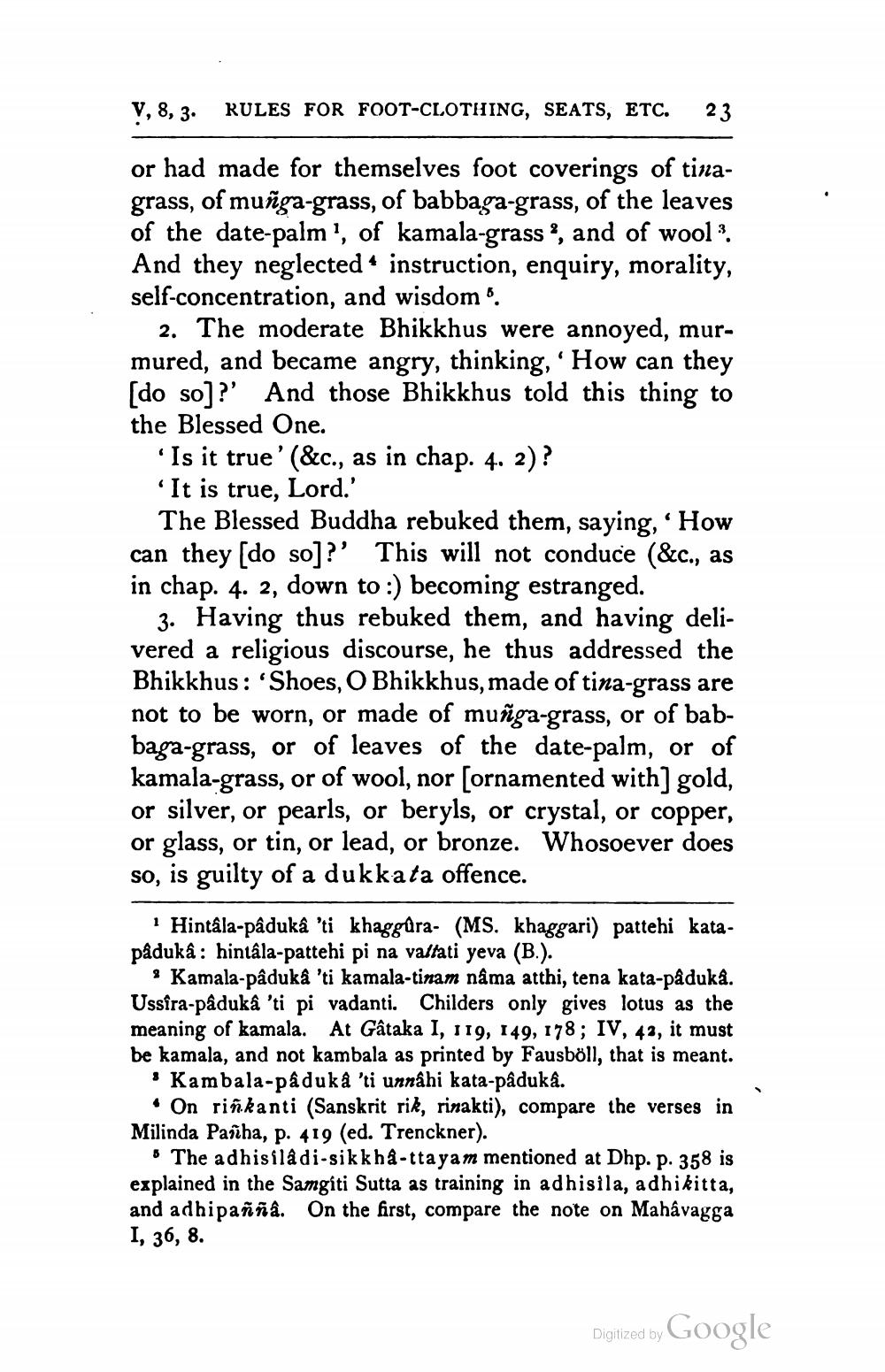________________
V, 8, 3. RULES FOR FOOT-CLOTHING, SEATS, ETC.
23
or had made for themselves foot coverings of tinagrass, of muñga-grass, of babbaga-grass, of the leaves of the date-palm?, of kamala-grass, and of wool ?. And they neglected • instruction, enquiry, morality, self-concentration, and wisdom.
2. The moderate Bhikkhus were annoyed, murmured, and became angry, thinking, 'How can they [do so]?' And those Bhikkhus told this thing to the Blessed One.
Is it true' (&c., as in chap. 4. 2)? It is true, Lord.'
The Blessed Buddha rebuked them, saying, “How can they [do so]?' This will not conduce (&c., as in chap. 4. 2, down to :) becoming estranged.
3. Having thus rebuked them, and having delivered a religious discourse, he thus addressed the Bhikkhus: 'Shoes, O Bhikkhus, made of tina-grass are not to be worn, or made of muñga-grass, or of babbaga-grass, or of leaves of the date-palm, or of kamala-grass, or of wool, nor [ornamented with] gold, or silver, or pearls, or beryls, or crystal, or copper, or glass, or tin, or lead, or bronze. Whosoever does so, is guilty of a dukkata offence.
Hintala-pâduka 'ti khaggûra- (MS. khaggari) pattehi katapåduka : hintâla-pattehi pi na valtati yeva (B.).
Kamala-pâduka 'ti kamala-tinam nâma atthi, tena kata-påduka. Ussira-paduka 'ti pi vadanti. Childers only gives lotus as the meaning of kamala. At Gâtaka I, 119, 149, 178; IV, 42, it must be kamala, and not kambala as printed by Fausböll, that is meant.
• Kambala-pâduka 'ti unnahi kata-pâduka.
. On rinkanti (Sanskrit rik, rinakti), compare the verses in Milinda Panha, p. 419 (ed. Trenckner).
The adhisilâ di-sikk hå-ttayam mentioned at Dhp. p. 358 is explained in the Samgiti Sutta as training in adhisila, adhikitta, and adhipa ñ ña. On the first, compare the note on Mahavagga I, 36, 8.
Digitized by
Digitized by Google




